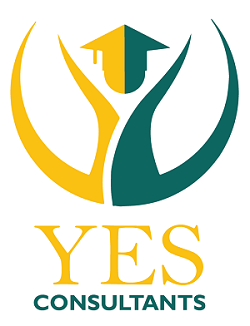Why Study in Canada?

Canada is one of the best places in the world to go to school. It gives you great chances to reach your academic goals, learn about other countries, and live a high-quality life. As a student in Canada, you will concentrate on both academics and new ideas, as well as gaining practical experience. Three of Canada’s top universities are McGill University, the University of Toronto, and the University of British Columbia. You will find an open-minded, multicultural culture filled with hundreds of thousands of students from all over the world.
Canada’s Tuition Fee
Tuition fees at Canadian universities change based on a number of factors. Some provinces are more expensive than others, and your fees may also depend on the type of school or university you choose. International students pay more for tuition in Canada than Canadian students do. Also, bachelor’s degree programs can be two or three times more expensive than master’s or doctoral degree programs.
Specifically, an international student who wants to get a bachelor’s degree in Canada will pay an average of 36,000 CAD per year. Undergraduate degrees in veterinary medicine, dentistry, and medicine can cost up to 68,000 CAD, which is a lot.
On average, postgraduate students who want to get a Master’s degree in Canada will have to pay 21,000 CAN per year in fees. MBA (Master of Business Administration) programs have some of the highest tuition costs (up to 76,000 CAD).
International students pay the least for tuition in Newfoundland and Labrador, where undergraduate programs cost around $16,000 CAD and graduate programs cost around $5,000 CAD.
Even though international students in Canada can’t get their tuition fees waived, some universities may give them small discounts or rebates if they can show they need the money or have good grades.
How to apply for a Canadian scholarship?
Scholarships can be a great way to lower the cost of tuition and living expenses if you are a student who wants to study in Canada. You can apply for as many grants as you want, but the process can take time, and there are some steps you need to take:
- Eligibility: Look at the standards and make sure you meet all of them before you apply.
- Documents: Before you apply, you’ll need to gather your academic transcripts, scores from a language proficiency test, a resume, letters of recommendation, and any other required documents.
- Letter of intent: When you apply for some grants, you have to write a letter of intent. Allow enough time to do this. This is your chance to explain why you deserve the grant more than anyone else. Make sure to talk about your past accomplishments and goals for the future.
- Apply: Each grant provider has its own rules for how to apply, so make sure to follow them carefully and get everything in before the deadline.
Documents you need to apply to college
Most universities have ways to apply online, so you can go to their websites and start the process. When you apply, you have to give information about yourself, like your academic background, work experience (if you have any), language skills, and any other documents that are needed. Most of the time, they are:
- A scanned copy of your diploma, whether it’s from high school or college
- A record of the classes you’ve taken in the past.
- Your passport was scanned.
- Your resume
- Scores on tests
- Proof of a grant or scholarship
- Between two and three letters of recommendation
- Portfolio and samples of your writing
Universities in Canada have to have English language standards.
- These are the most-taken English tests:International English Language Testing System, or IELTS. Most Canadian colleges ask for an overall IELTS score of at least 6.5.
- Pearson Test of English, or PTE. For bachelor’s programs, advanced diplomas, and postgraduate programs, universities generally require a minimum PTE score of 60.
- TOEFL is the Test of English for Speakers of Other Languages. Top Canadian universities ask for a TOEFL score of 90 or higher. Still, most universities ask for a score of 80 or higher for entry into an undergraduate program and 90 or higher for a Master’s or PhD program.
List of Canada universities approved for Pakistan
- Conestoga College
- Confederation college
- University of Windsor
- University of Canada west
- University of Ottawa
- Durham college
- Loyalist college
- Canadore college
- Concordia university of Edmonton
- Trent uni
- Crandall university
- Trent uni
- University of Fraser valley
